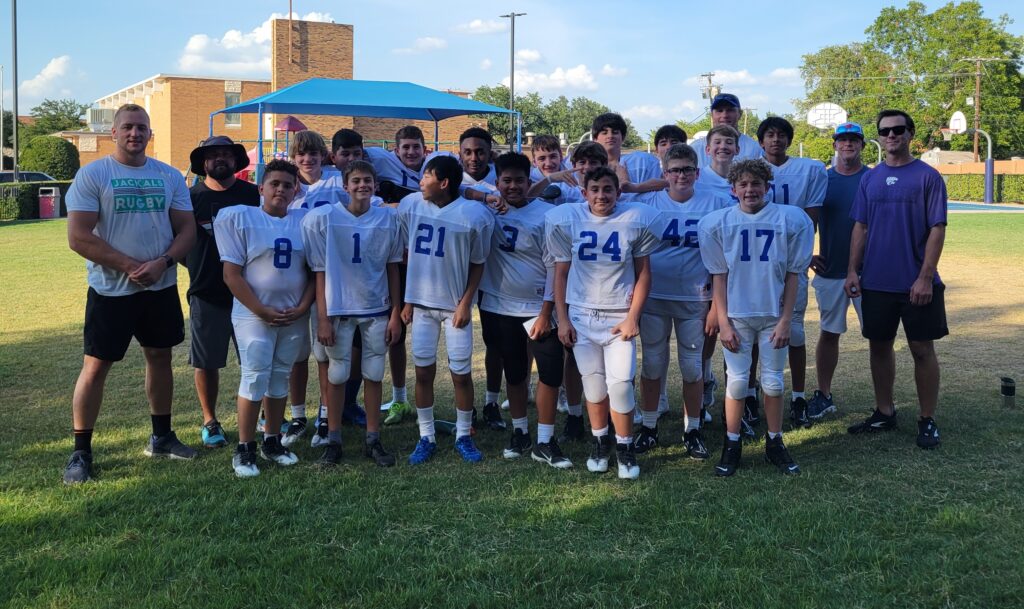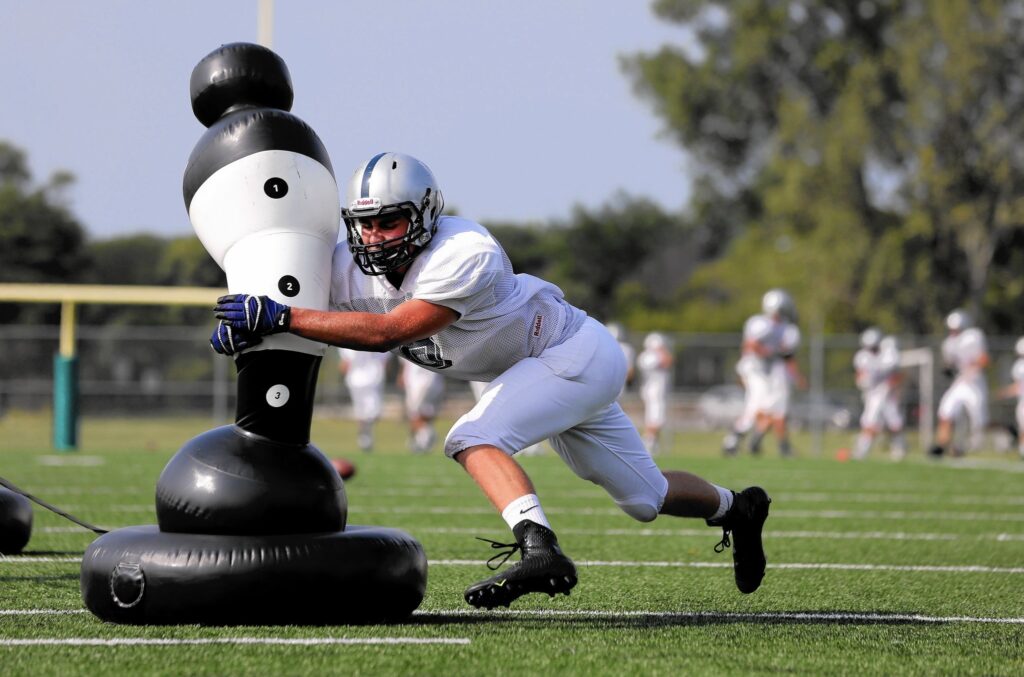
Sign up for Newsletter
Join our newsletter to receive offers and information on upcoming events.
Football is a game of passion, discipline, and toughness. But as our understanding of player safety evolves, so must the way we teach the sport—especially when it comes to tackling.
For decades, traditional tackling techniques like the “head across the bow” or “spearing” were the norm. Coaches emphasized aggression over form, often leading to dangerous collisions and preventable injuries. Today, we know better. Research shows that the tackler suffers the majority of concussions in football, and outdated methods are a big reason why.
At TackleSmart Sports, we believe in preserving the physicality of football while making it safer, smarter, and more sustainable for the next generation. Here’s why old-school tackling must change—and how modern rugby-inspired techniques can protect players without sacrificing performance.
Traditional football tackling has long emphasized leading with the head—a technique now proven to endanger players. When tacklers dip their helmet or spear opponents, they risk:
Research shows that poor form—not just big hits—is the leading cause of concussions in youth football. A Recent study in the Journal of Neurosurgery found that tacklers sustain 72% of football-related concussions, often from misguided “launching” techniques. At TackleSmart, we’ve seen how correcting these habits can reduce injuries by over 50% in trained athletes.
Old-school methods teach defenders to react to ball carriers rather than control the tackle. This reactive approach leads to:
Consider this: NFL data reveals that 15–20% of missed tackles occur because defenders lead with their head, losing sight of the target. Rugby-style tackling flips this script by teaching players to break down, engage, and finish with precision—turning defenders into consistent, confident tacklers.
Many coaches still teach methods they learned in the 1980s or ’90s, not because they’re optimal, but because “that’s how we’ve always done it.” This resistance to change has consequences:
The good news? Progress is possible. Programs like the Seahawks’ “Hawk Tackle” (adapted from rugby) prove that when coaches commit to retraining, injuries drop and performance soars. At TackleSmart, we provide the tools to make this shift—because every player deserves coaching that prioritizes their future.
Rugby players routinely execute tackles without helmets yet experience significantly fewer head injuries than football players – a paradox that reveals everything wrong with traditional football tackling methods. The key lies in rugby’s fundamentally different technique, which prioritizes three core principles:
SHOULDER-LED CONTACT
→ Eliminates dangerous head-first collisions
→ Reduces concussions by 30%+ (NFL data)
PROPER BODY MECHANICS
→ “Eyes up, chest forward” protects spine
→ Maintains better balance and control
CONTROLLED FINISH
→ Wrap-and-roll technique prevents whiplash
→ Results in more secure tackles (fewer misses)
This method isn’t just safer — it’s more effective. NFL teams like the Seattle Seahawks have adopted rugby-style tackling with fewer missed tackles and fewer concussions.
At TackleSmart, we don’t just teach safer tackling—we reinforce it through science-backed training:
Progressive Drills – Building muscle memory for game-speed situations
Biomechanics Training – Optimizing body positioning for power & safety
Coach & Parent Education – Ensuring everyone understands why technique matters
The results? Players who:
✔️ Tackle with confidence
✔️ Reduce injury risk
✔️ Stay in the game longer
The game isn’t getting “softer” — it’s getting smarter. With organizations like the Texas High School Coaches Association (THSCA) mandating safer tackling certifications, the shift is already happening.
But change starts at the grassroots level. As coaches and parents, we have a responsibility to teach techniques that protect players — not just win games.
If you’re a coach or parent who wants to keep players safe while improving their performance, TackleSmart can help.
📢 Join the movement today!
Sign up for our coaching clinic
Because football should be tough — not dangerous.




Join our newsletter to receive offers and information on upcoming events.